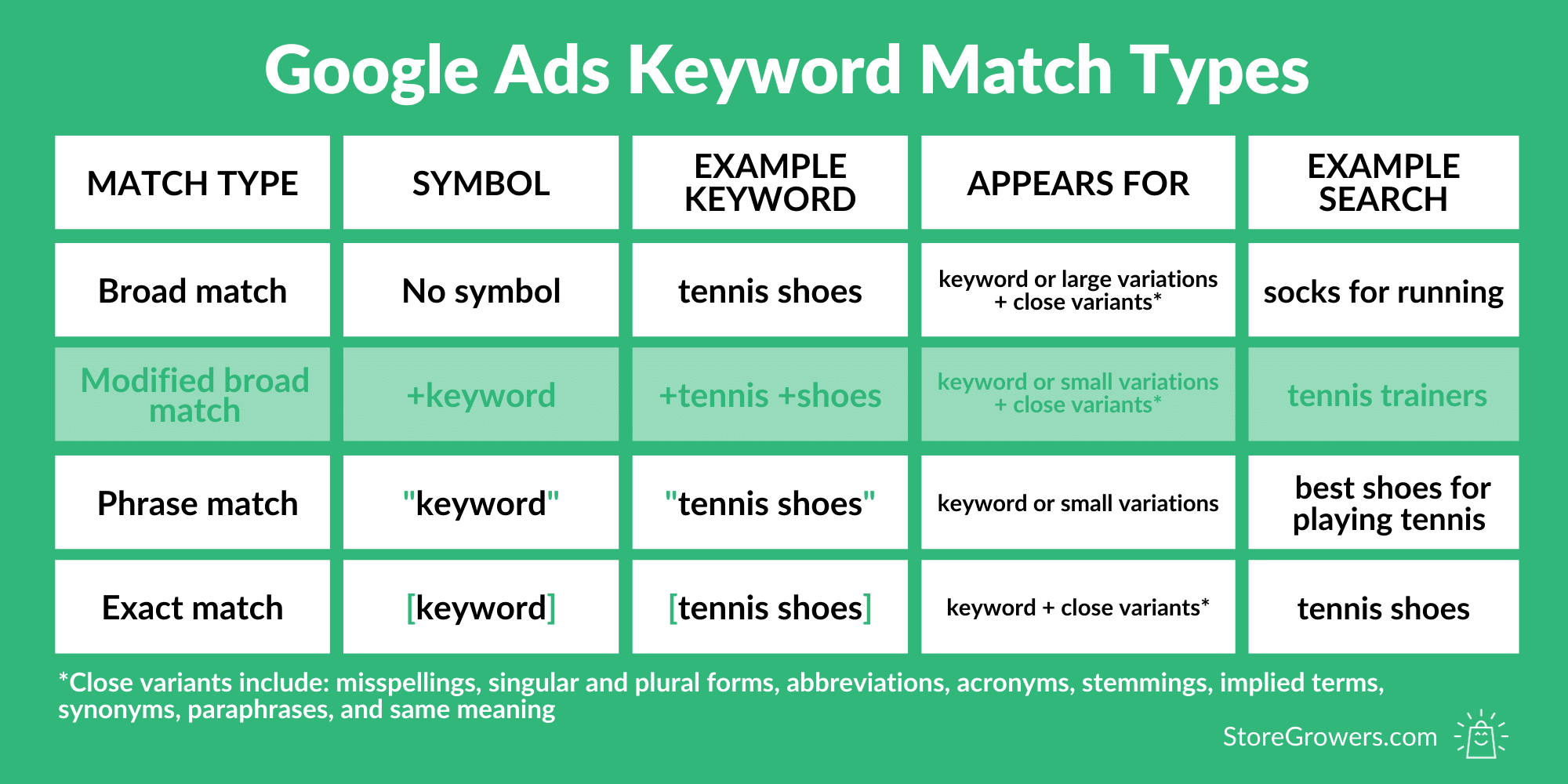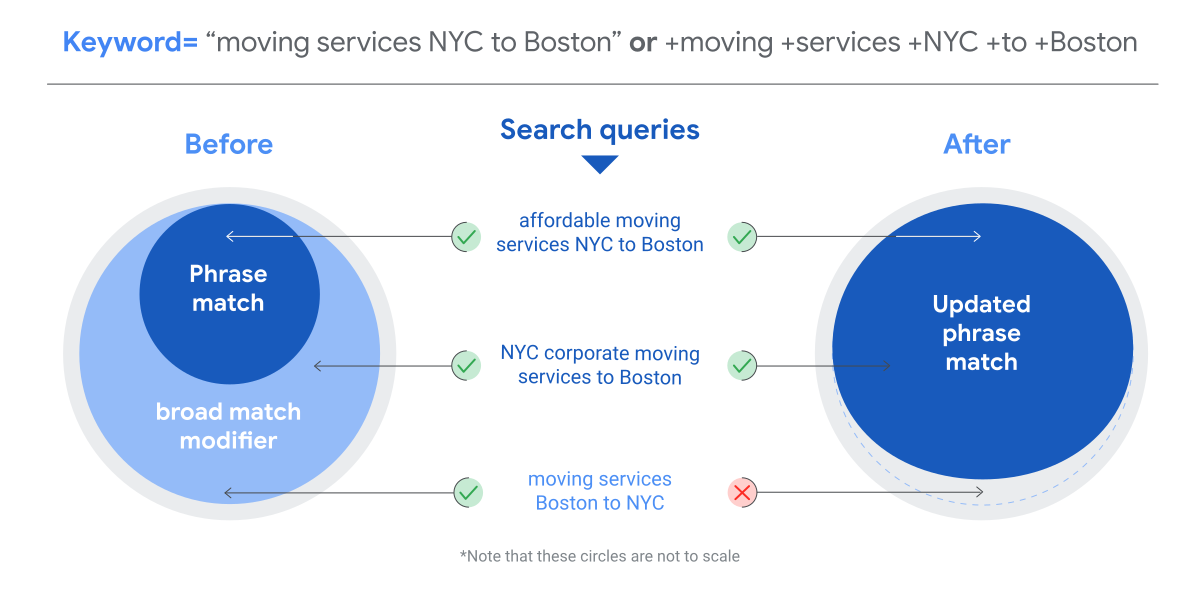After years of tinkering with keyword match types, in 2021 Google Ads made its biggest change yet.
The short version: broad match modifier stopped being a match type ☠️ and an “updated phrase match” takes its place instead.
In this article, we break down what exactly changed and what changes you need to make to your campaigns!
What exactly has changed?
A “new phrase match” took the place of modified broad match.
That leaves us with three match types available in Google Ads:

To get a better idea of what exactly has changed, let’s take a look at a graph that Google included in its announcement:

In the graph you might notice that the updated phrase match doesn’t cover all modified broad match keywords (see the little dotted line below the blue circle on the right).
For some queries, word order still appears to play an important role:
- “Moving services NYC to Boston”
- “Moving services Boston to Boston”
These two keywords trigger different search queries.
But for other queries, Google might determine that the word order doesn’t matter:
- “Jordan One”
- “One Jordan”
In this case, it’s important to be aware of whether this distinction is important to your campaigns.
Now let’s take a closer look at the other changes.
What impact did these changes have?
One of the core principles to achieve good advertising performance is having a good account structure.
With Google Search Ads, that means you understand which campaign and ad group will serve an ad for a particular search query.
This change to the match types seriously shakes things up.
I used to rely heavily on broad match modifier in my Google Ads accounts. I mostly used it to find new search queries. So let’s see how my approach has changed.
Impact on existing campaigns
For campaigns that were wet up when modified broad match still worked, there are three big areas affected:
1 – Duplicate keywords
After July 2021, Google treats any modified broad match keyword as identical to phrase match.
So if you have both match types in a campaign, these are duplicate keywords, which is something you want to avoid.
I would pause the modified broad version, and continue with phrase match instead.
2 – Tight ad groups
If most of your ad groups used the restrictive nature of the “old” phrase match type, this update had a big impact.
Advertisers that use the outdated SKAG strategy, needed to revise their approach.
If you have to overhaul your account, it might be an ideal time to consider moving towards intent-based ad groups (IBAGS) instead.
3 – Automated bidding
If you had a phrase match keyword in an account, the variety of new search terms didn’t change much. Which is why you could use automated bidding to bank on this stability.
But because phrase match now shows for a lot of different search terms, you can expect to see big changes in performance.
Take the following example:
The target ROAS for each of the ad groups is different.
That’s because we identified queries that can perform at a higher ROAS compared to the campaign average (ad group #1).
In Ad group #2 there were exclusively phrase and exact match keywords. The overall conversion volume is lower, but the ROAS a lot better.
If we didn’t make any change to this ad group, the phrase match keywords inside ad group #2 would have started to show up for a wider set of queries. Which would have dragged down the overall performance and will probably meant that this ad group can’t hit the 1100% ROAS target any longer. And as a result, it would have lost visibility.
Impact on new campaigns
Our playbook for creating new campaigns has also changed.
When you don’t know the exact search queries in a market yet, or don’t have a good idea of their performance, we use phrase match.
This will surface new search queries, while still sticking pretty close to the keywords in the account.
I’ll also adapt my ad copy accordingly, that way it can support a wider variety of search queries.
In the parts of the campaigns that need tighter control over which keyword can show, we’re now using exact match.
Note: Negative keyword match types aren’t affected by this change. Negative phrase match will still exclude the word order.
How to adapt your campaigns?
As mentioned in this article, these changes have shaken up the match types pretty good.
In short, here is how we’re adapting:
- Watch any instance of modified broad like a hawk
- Adapt account structure
- Leverage phrase match to find new keywords
- Leverage exact match as the most restrictive match type.
Now I’m curious to hear how you’ve adapted to these changed! Let’s hear it in the comments!

